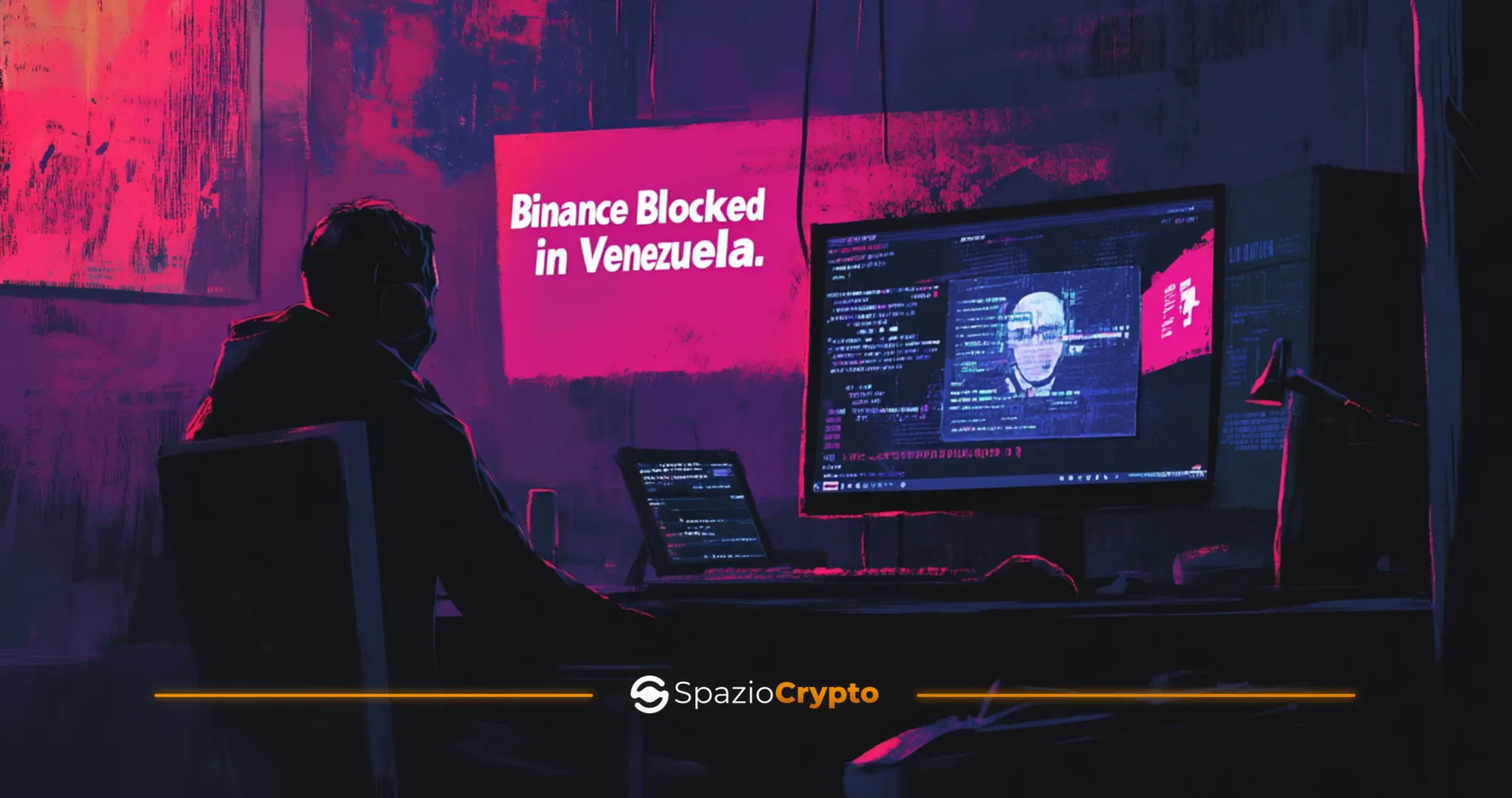
Venezuela blocks Binance in presidential dust-up
In the social and political dust-up that followed the controversial presidential election result in Venezuela, numerous sites were blocked. Among them, also that of Binance.

In the social and political dust-up that followed the controversial presidential election result in Venezuela, numerous sites were blocked. Among them, also that of Binance.

Get the latest news, learn from experts, discover new tools, and find inspiration right in your inbox.
No spam. Unsubscribe anytime.
A powerful documentary on how Bitcoin and blockchain are reshaping money, power, and geopolitics—from El Salvador’s Bitcoin experiment and Europe’s regulatory revolution to the rise of decentralized finance and the new global financial order.
When a dictatorship gets into trouble, it is usual for it to react by restricting the freedom of speech, and thus of denunciation, of its opponents. It should therefore come as no surprise the gag placed by Venezuela on social X, formerly Twitter, a rapid tool for spreading news around the world. More surprising, however, is that the same measure was taken against Binance, the world's most popular cryptocurrency exchange.
The Binance Restriction
The alarm came last 9 August, when Binance LatAm, the South American division of the transaction giant, alerted its users - and the whole world - to the existence of a DNS block on the crypto exchange's address, capable of preventing Venezuelan addresses from accessing the site correctly. Confirmation came the following day, the 10th, when, following further testing, Binance posted on its site, and on X, confirmation of the blockade:
A local organisation opposing censorship, called VE sin Filtro, confirmed the existence of the blockade and broadcast on its channels Binance's communiqués, which otherwise would not have been visible to Venezuelans. From the exchange they immediately informed users in the country that their savings were not at risk and the situation was being monitored from the moment the DNS was discovered.
The Causes of the Block
The Venezuelan government has no problem whatsoever with cryptocurrencies. The blockade of Binance is not due to a desire to prevent their direct purchase, but rather to limit another service offered by the site: the possibility of transferring peer-to-peer money.
This is a popular way of converting money into tokens, which is widely used in Venezuela, since the local currency, the bolivar, is heavily inflated and worth rather little. Turning it into crypto means being able to resell it in the form of an asset that is easier to manage.
According to VE sin Filtro, every Venezuelan involved in the blockade should use a VPN, a virtual private network capable of fooling the network's access point detection. In this way, while physically being in Venezuela, it is possible to surf the network by making the provider believe that one is accessing from another location, thus circumventing local blocks.
The encrypted messaging app Signal was also blocked, for the same reasons.
Binance and the Situation in Venezuela
On 28 July, following the counting, if we can call it that, of the ballot papers, the country's government-controlled electoral authority awarded victory to Nicolas Maduro, with just over 51% of the vote. His challenger, Edmundo Gonzalez, on the other hand, claimed to have obtained more than 70% of the vote and declared himself the winner. The government did not provide official polling data. Many analysts doubt that there were any.
The United States, the United Kingdom, the European Union and several Latin American countries did not recognise Maduro's victory. Binance appears to be yet another victim of the severe censorship of a leader who feels he is slipping in his chair.
Maduro's Declarations
On 9 August, the president of Venezuela - or the loser, depending on how you look at it; we use this term for sheer clarity of exposition - gave a speech to the nation, ordering the Venezuelan telecommunications regulator to ban access to X, from the country, for 10 days. Elon Musk, owner of the former twitter social, took it rather badly. He immediately challenged the politician to a public confrontation. Maduro replied that he is ready to hold it, as soon as the dust settles.
It now remains to be seen whether Binance will also be reopened, for Venezuelan users, on 19 August, at the end of X's 10-day closure. In the meantime, the exchange continues to push its token, BNB, which we focused on a few days ago.
If you want to stay informed, or informed, about this story and others related to Web3 and cryptocurrencies, subscribe to the newsletter from SpazioCrypto.
Read Next
Wall Street between AI and Santa Claus Rally: risk or opportunity
Wall Street is torn between the seasonal year-end rally and doubts about the sustainability of investments in artificial intelligence, while Bitcoin and risk assets show signs of weakness.
YouTube integrates PayPal's PYUSD to pay US creators
YouTube introduces PayPal's PYUSD as an optional payment method for eligible creators in the US, opening up stablecoins in mainstream monetisation streams.
Light Penalty for the 40 Billion Collapse: Why Do Kwon took Less than SBF
The US federal judiciary has issued conflicting sentences in the most egregious crypto cases. Prosecutorial conduct has weighed more heavily than economic loss in the disparity of punishment between Do Kwon and SBF.
LUNA soars 55% pending Do Kwon ruling
LUNA is up 55% in 24 hours thanks to the network upgrade and the wait for the Do Kwon ruling, while the market remains divided over the rally.